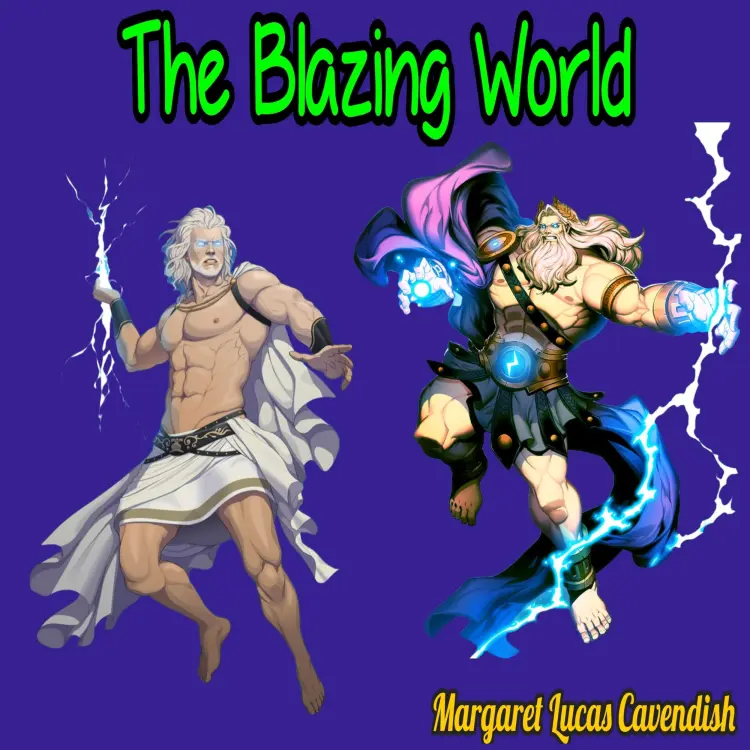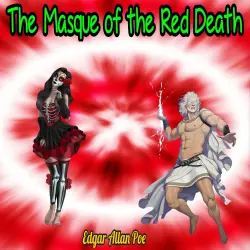
The Blazing World
Margaret Lucas Cavendish
Unabridged
4 hours 1 minute
Note: Costs may be incurred for playing the audio books or audio plays on the respective platforms, e.g. Spotify. Lismio has no influence on which audiobooks and audio plays are available on the service.
Some articles contain affiliate links (marked with an asterisk *). If you click on these links and purchase products, we will receive a small commission at no extra cost to you. Your support helps to keep this site running and to continue creating useful content. Thank you for your support!
From the publisher
The Blazing World by Margaret Cavendish The Description of a New World, Called The Blazing-World, better known as The Blazing World, is a 1666 work of prose fiction by the English writer Margaret Cavendish, the Duchess of Newcastle. Feminist critic Dale Spender calls it a forerunner of science fiction. It can also be read as a utopian work.
As its full title suggests, Blazing World is a fanciful depiction of a satirical, utopian kingdom in another world (with different stars in the sky) that can be reached via the North Pole. According to novelist Steven H. Propp, it is "the only known work of utopian fiction by a woman in the 17th century, as well as an example of what we now call 'proto-science fiction' - although it is also a romance, an adventure story, and even autobiography."
Blazing World opens with a poem written by William Cavendish, 1st Duke of Newcastle. Cavendish's book inspired a notable sonnet by her husband, William Cavendish, 1st Duke of Newcastle-upon-Tyne, which celebrates her imaginative powers.
The sonnet was followed by a letter to the reader written by Margaret Cavendish herself. In the letter to the reader, Cavendish divides Blazing World into three parts. The first part being "romancical", the second "philosophical", and the third "fancy" or "fantastical".
The first "romancical" section describes a young woman being kidnapped and unexpectedly being made Empress of The Blazing World. The second "philosophical" section describes the Empress' knowledge and interest in the natural sciences and philosophy. She discusses these topics with the scientists, philosophers, and academics of The Blazing World. In the final "fantastical" section, the Empress acts in the role of a military leader during an invasion.
She clothes herself in jewels and special stones that give her the appearance of a deity. When the Empress triumphs over the naval battle, the Blazing World is described again as a utopic empire.
As its full title suggests, Blazing World is a fanciful depiction of a satirical, utopian kingdom in another world (with different stars in the sky) that can be reached via the North Pole. According to novelist Steven H. Propp, it is "the only known work of utopian fiction by a woman in the 17th century, as well as an example of what we now call 'proto-science fiction' - although it is also a romance, an adventure story, and even autobiography."
Blazing World opens with a poem written by William Cavendish, 1st Duke of Newcastle. Cavendish's book inspired a notable sonnet by her husband, William Cavendish, 1st Duke of Newcastle-upon-Tyne, which celebrates her imaginative powers.
The sonnet was followed by a letter to the reader written by Margaret Cavendish herself. In the letter to the reader, Cavendish divides Blazing World into three parts. The first part being "romancical", the second "philosophical", and the third "fancy" or "fantastical".
The first "romancical" section describes a young woman being kidnapped and unexpectedly being made Empress of The Blazing World. The second "philosophical" section describes the Empress' knowledge and interest in the natural sciences and philosophy. She discusses these topics with the scientists, philosophers, and academics of The Blazing World. In the final "fantastical" section, the Empress acts in the role of a military leader during an invasion.
She clothes herself in jewels and special stones that give her the appearance of a deity. When the Empress triumphs over the naval battle, the Blazing World is described again as a utopic empire.








